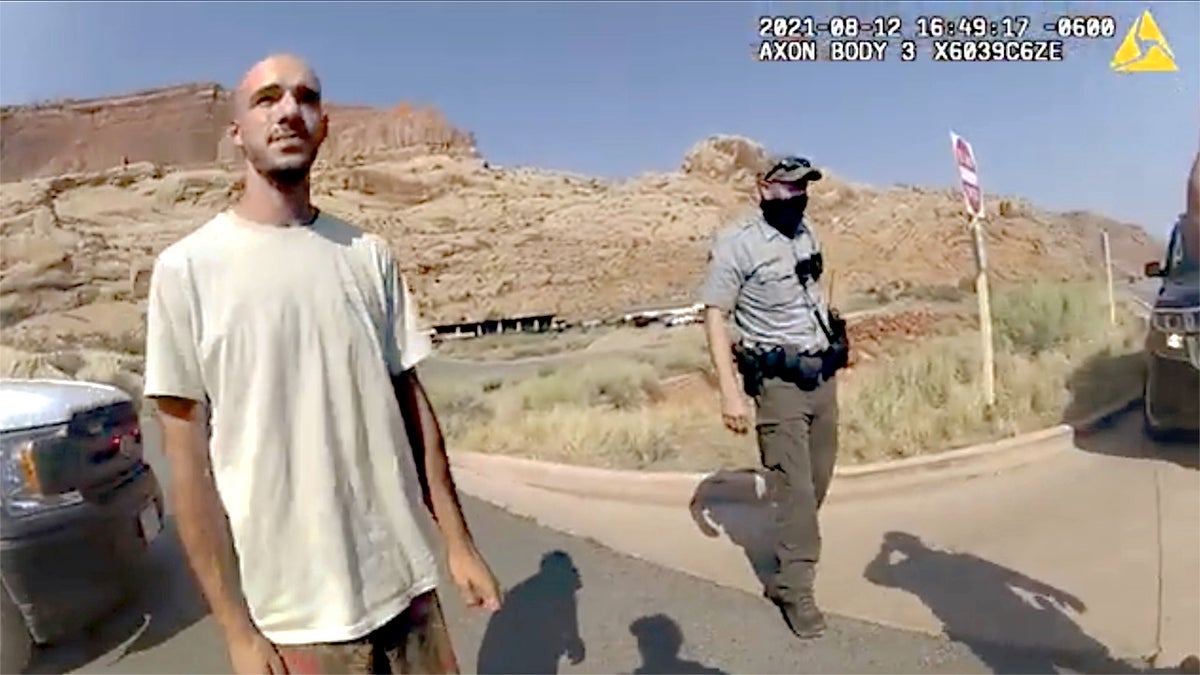Ted Williams: There is something 'very smelly' about Laundrie's parents' actions
Former D.C. homicide detective Ted Williams joins 'Fox News Live' to discuss the ongoing search for Brian Laundrie
Florida police on Sept. 15 named fugitive Brian Laundrie a person of interest in their investigation into the disappearance of his now-deceased fiancée, 22-year-old Gabby Petito.
Laundrie, 23, and Petito were traveling cross-country in a Ford transit van when Petito disappeared. Laundrie returned home to North Port, Florida, on Sept. 1 in the van without Petito, and her parents reported her missing on Sept. 11.
"As of now, Brian has not made himself available to be interviewed by investigators or has provided any helpful details," police said at the time. "We know Brian returned here to North Port on September 1st — ten days before her family reported her missing on September 11th. We have no information that a crime occurred here in North Port."

Brian Laundrie (Moab Police Department)
GABBY PETITO: PRIVATE INVESTIGATOR CLAIMS ASPHYXIATION MAY HAVE CAUSED DEATH: LIVE UPDATES
Petito's remains were discovered on Sept. 19 at a dispersed campground in Wyoming's Bridger-Teton National Forest, and Teton County coroner Brent Blue ruled her death a homicide in a preliminary autopsy report. The full report has yet to be released.
Laundrie, 23, has not been charged in her death, nor is he a suspect in Petito's homicide because authorities have not disclosed any information about evidence linking him to the crime, according to Ajay Pallegar, a criminal defense attorney in Tampa, Florida.
"A person of interest is somebody who may have information pertinent to a crime," Pallegar told Fox News. "They may not rise to the level as a suspect yet, whereas a suspect is a person who…authorities believe committed a crime."
A person of interest could be a suspect at a future date, or they could simply be a witness or somebody law enforcement want to speak to. It's a very vague category.
FORMER FBI AGENT SAYS BRIAN LAUNDRIE WILL LIKELY BE FOUND ‘IN HIS COMFORT ZONE’
He added that the term "person of interest" is often used as a euphemism for "suspect" and that the label "prevents police from having to backtrack in the event that a person of interest does not become a suspect."
"It's really hard to tell, in this case, why they labeled Laundrie as a person of interest rather than a suspect," Pallegar said. "There could still be … internal evidence that could establish him to be a suspect. However, for public relations reasons, law enforcement don't want to make that public."
CLICK HERE TO GET THE FOX NEWS APP
Pallegar went on to explain how suspects are often "afforded constitutional rights," while persons of interest, "assuming they're not in custody and they're free to leave and police just want to speak to them, they may not have those rights."
Authorities are asking anyone with information about the case to contact the FBI's tip line at 1-800-CALLFBI (225-5324).











































